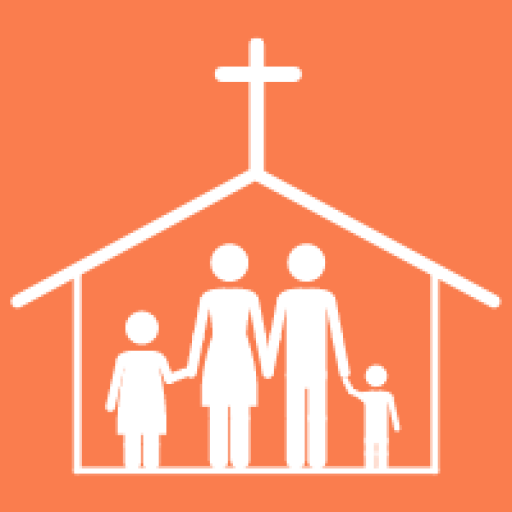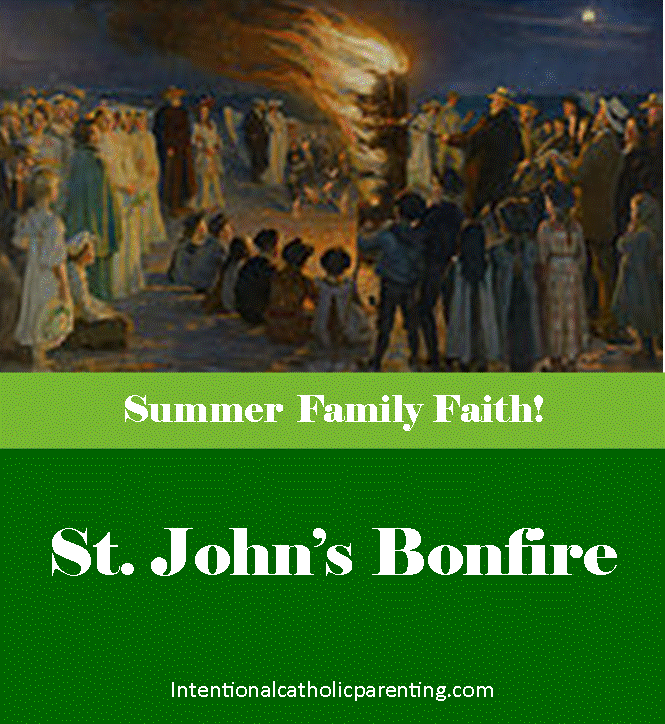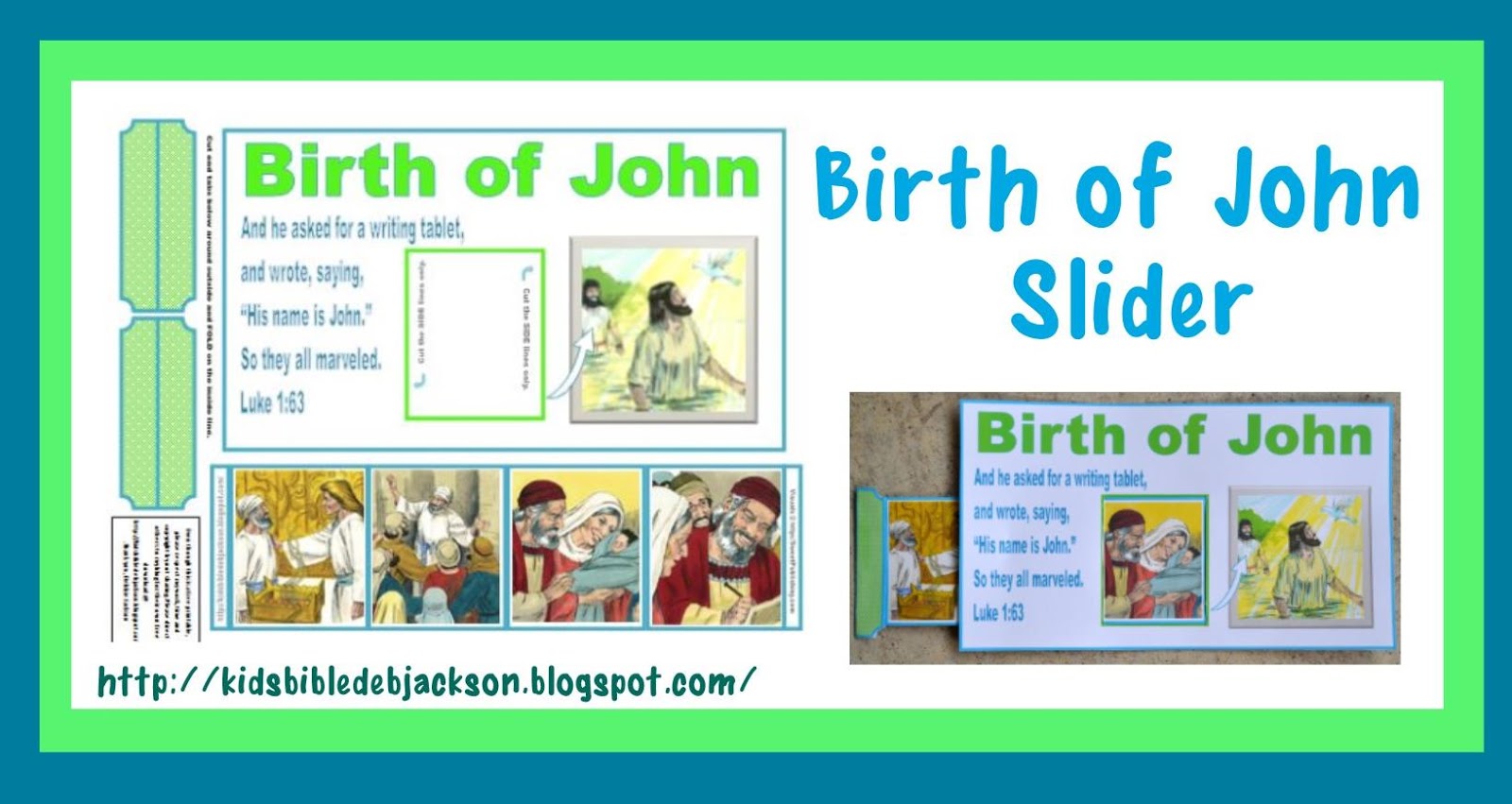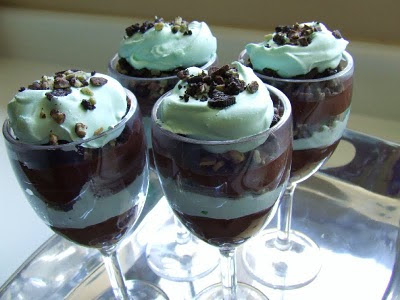On the Church calendar, the birthday of St. John the Baptist is celebrated on June 24. One custom dating back to ancient times is to have a bonfire on the eve of St. John’s Birthday (so the night of June 23). Here’s a simple explanation from Joanna Bogle:
The tradition of lighting a bonfire on St. John’s Day is said to go back to the idea that Elizabeth lit a fire as a beacon to tell the news that her child, John the Baptist, had been born. In Ireland, the ashes of the St. John’s fire are regarded as having a special quality, and are spread on the fields to ensure good crops. . . In medieval times, some of the original Christmas nativity plays were in fact performed in midsummer, out of doors. People called June 24 the “summer Christmas” . . . This is the right evening for an outdoor supper, over a bonfire or barbecue. Sit around late and long afterwards, and sing and talk. A Yearbook of Seasons and Celebrations, 77-78.
Love this idea! A birthday bonfire for St. John the Baptist just as the summer days set in. Of course, check your local zoning. Alternatively, you could light up your fire pit or barbecue.
Catholic Culture has Mass readings for the day plus insights about the way various world cultures observe St. John’s Day.
- In Brazil, children set off firecrackers around the bonfire. They also dance and sing while jumping over the fire!
- Fishermen in Brittany celebrate by putting old clothes in a barrel and setting it on fire. Each ship does this at exactly 8:00; then they gather around the fire, singing and praying together.
- Scandinavians have a kind of summer Halloween: the kids trick or treat and toss straw men into the bonfire. Fascinating! How can anybody think Catholics are a dreary bunch?
One of the traditional hymns for this day is “Ut queant laxis,” a Gregorian chant composed in the 8th century. You might use it as a prayer before your bonfire. The translation in the link may sound archaic for young children, so perhaps older kids can work on making a more child-friendly version for their younger siblings. Ask your big kids what the chant means.
In addition to the bonfire with accompanying singing and laughter, here are a few ideas to make your day special:
Activities
- Here is a complete lesson plan, including scripture readings, tips for telling the story of John’s birth, and visual aids.
- Here’s a “paper slider” project about John the Baptist.
- John the Baptist fact cards ($3.50). These would be fun to use during breakfast or around the bonfire.
- Honey play dough. Because it’s playdough with honey.
- Lacy at Catholic Icing has a cute John the Baptist Notebooking Page.
Food ideas
Of course, you can just barbecue hot dogs and drink lemonade, but here are a few more possibilities. John the Baptist lived on locusts and honey, so the food ideas are intriguing . . .
- Check out this hive shaped cake with locust pretzel treats.
- Locust parfaits. I could actually pull this off.
- How about a salad with honey dressing? Here’s a gorgeous spinach salad with honeyed pecans and honey dressing.
- I found this easy idea on Pinterest: green grapes on plastic skewers with a dollop of frosting for the eyes and mini chocolate chip pupils.

I’ll end with a quote from St. Augustine’s sermon on John the Baptist where he talks about the significance of John’s birth (Zechariah is John’s father):
Zechariah is silent and loses his voice until John, the precursor of the Lord, is born and restores his voice. The silence of Zechariah is nothing but the age of prophecy lying hidden, obscured, as it were, and concealed before the preaching of Christ. At John’s arrival Zechariah’s voice is released, and it becomes clear at the coming of the one who was foretold. The release of Zechariah’s voice at the birth of John is a parallel to the rending of the veil at Christ’s crucifixion. If John were announcing his own coming, Zechariah’s lips would not have been opened. The tongue is loosened because a voice is born. For when John was preaching the Lord’s coming he was asked: Who are you? And he replied: I am the voice of one crying in the wilderness. The voice is John, but the Lord in the beginning was the Word. John was a voice that lasted only for a time; Christ, the Word in the beginning, is eternal.



